Your Next Trip TRAVEL GUIDE
Jordan
In this episode, we explore the breathtaking wonders of Jordan, from its majestic ancient architecture to thrilling desert adventures. Dive into the crystal-clear waters of the Red Sea, stay with locals for an authentic cultural experience, and savor the rich flavors of Jordanian cuisine. We’ll also visit spectacular holy sites, and take a dip in the unique, buoyant waters of the Dead Sea.
Join us as we uncover the diverse landscapes and unforgettable experiences that make Jordan a must-visit destination.
Watch the Documentary
Jordan's Culture Keepers
Go beyond the guidebook and experience the soul of Jordan through the people, traditions, and landscapes that define it.
Our original documentary Jordan’s Culture Keepers takes you inside the artisan workshops, family kitchens, ancient ruins, and desert adventures that make this country unforgettable.
Click Here to learn more about the filmNow, check out our recommendations featured in this episode and more!
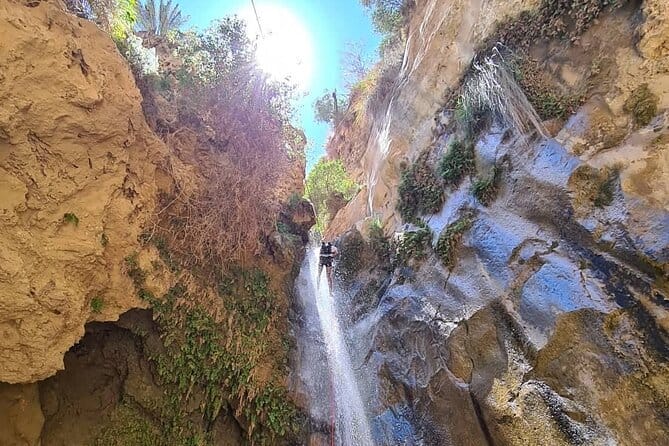

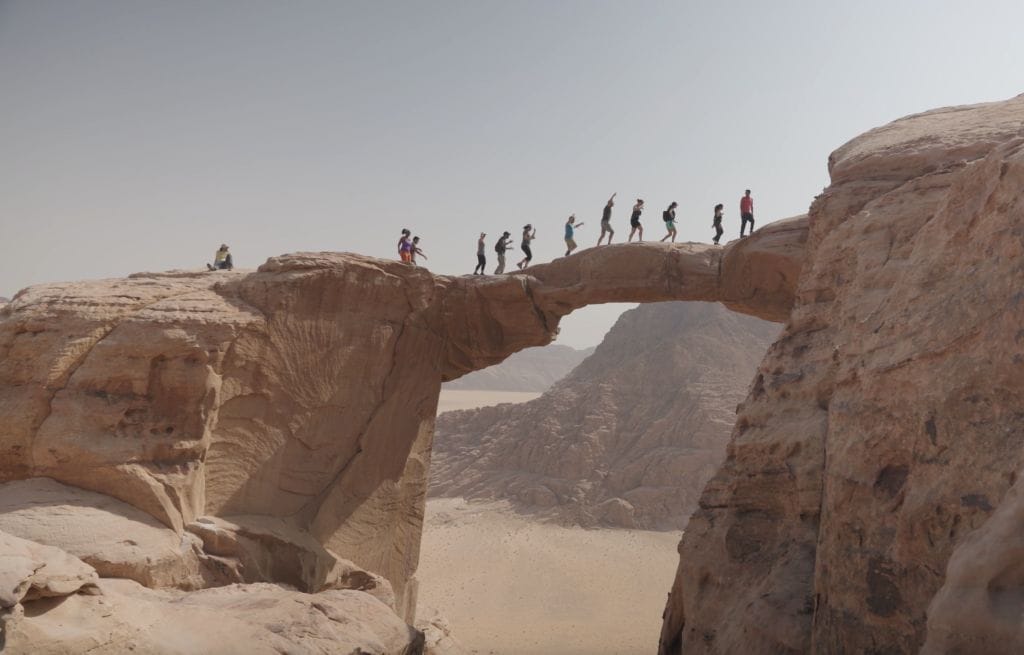
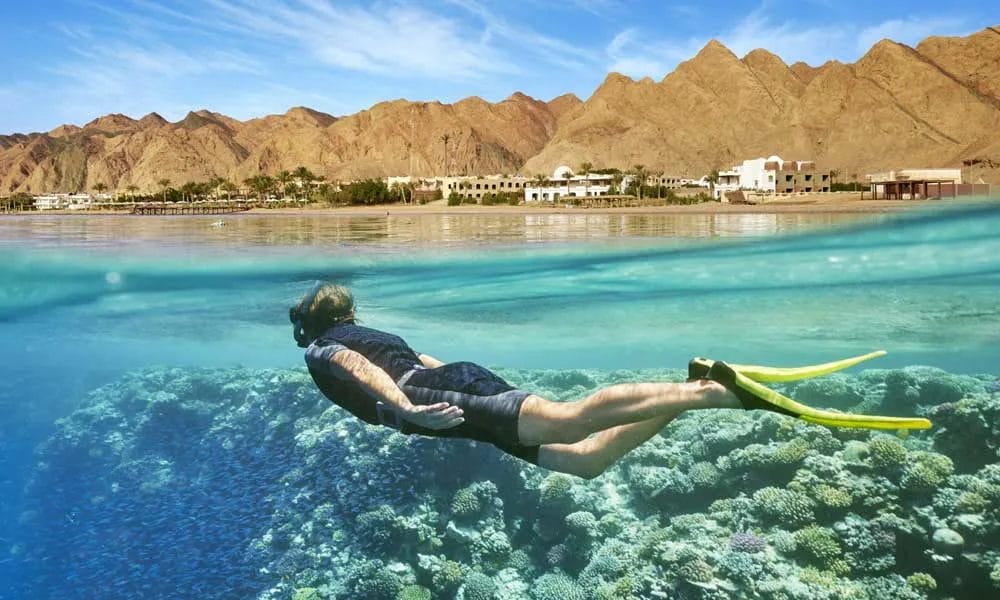
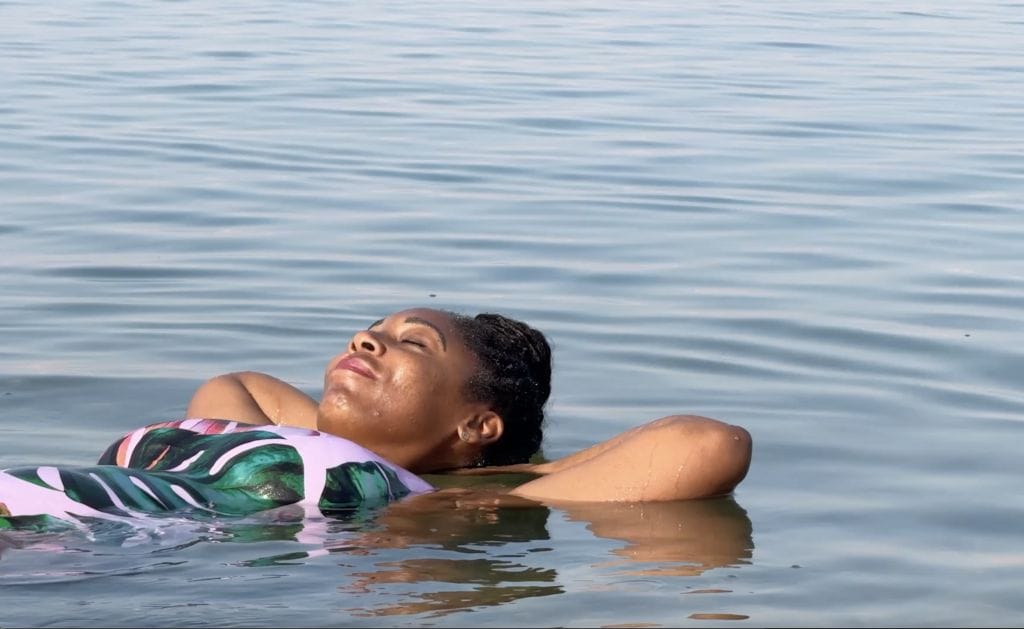
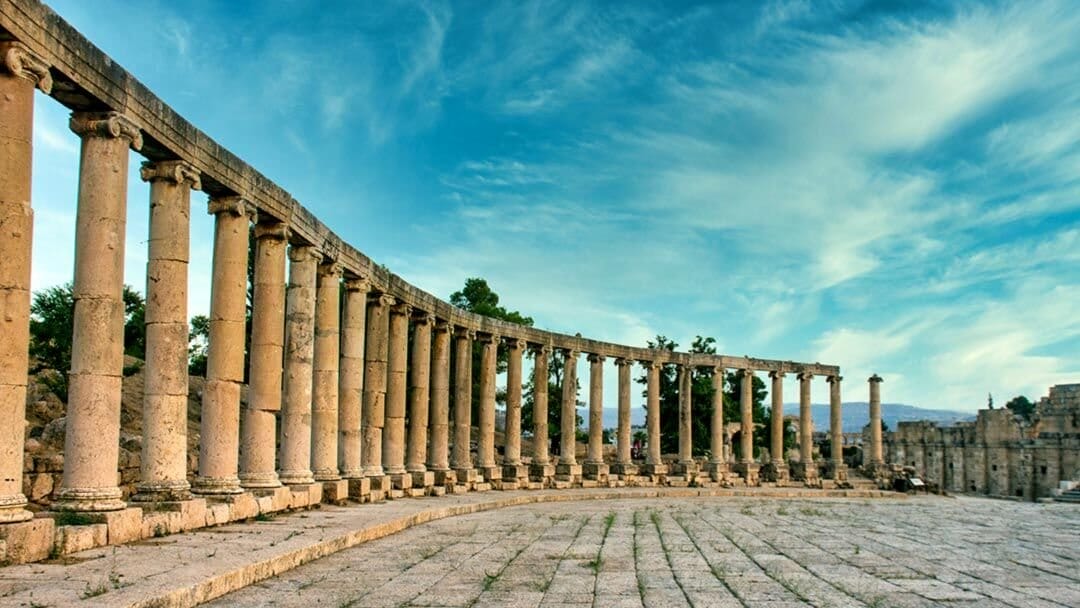
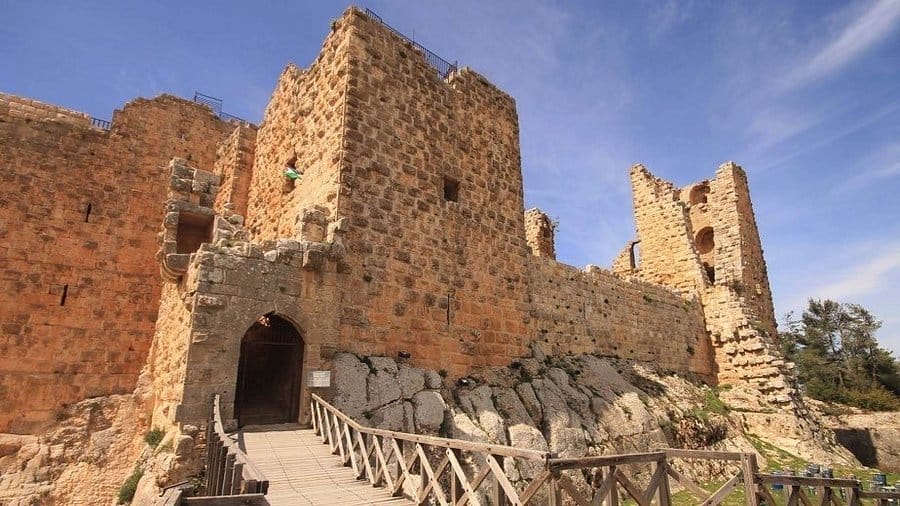
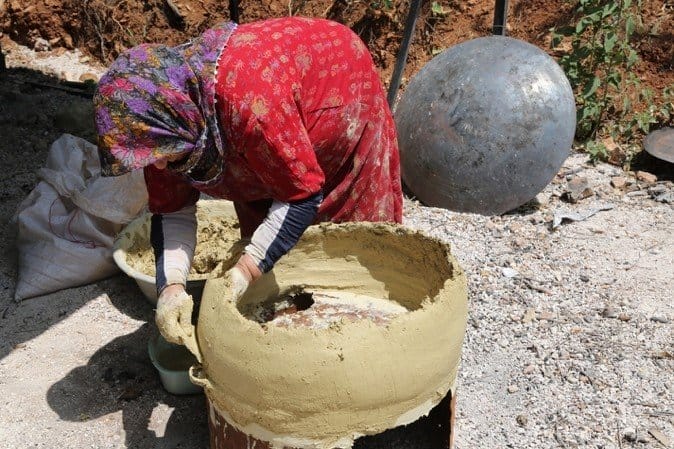
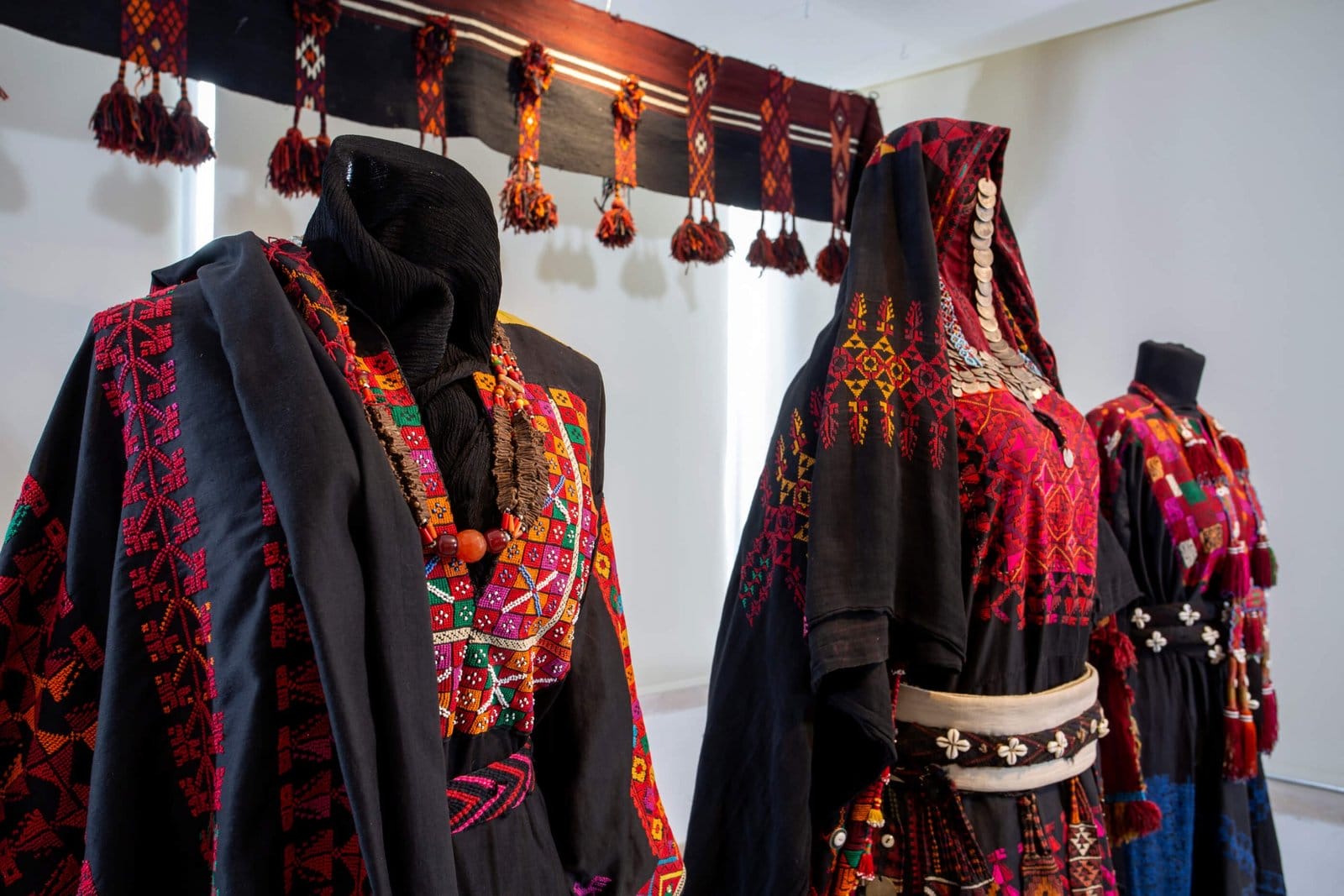
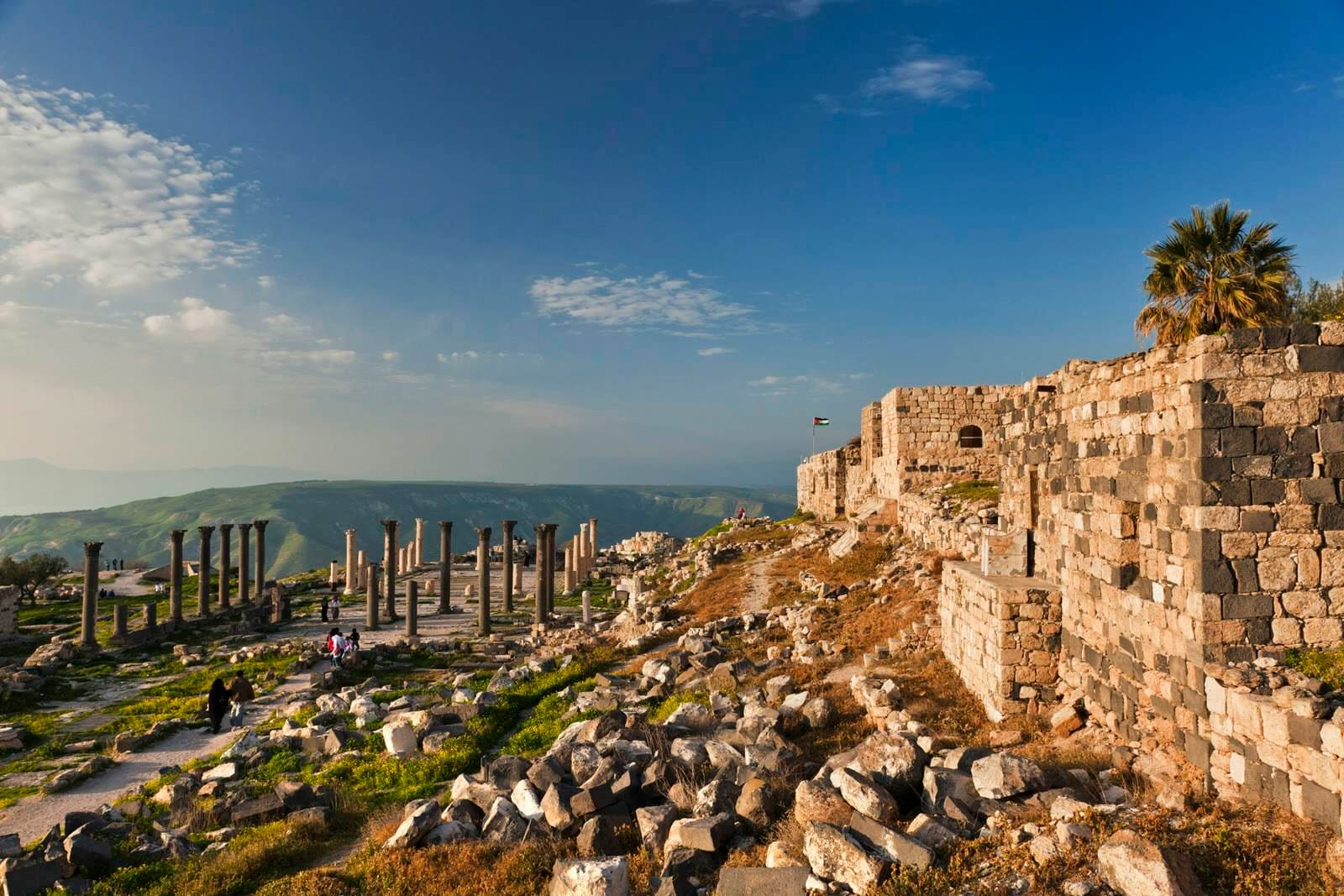
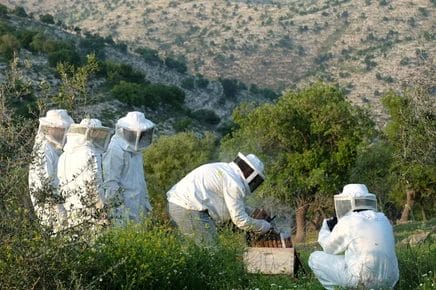
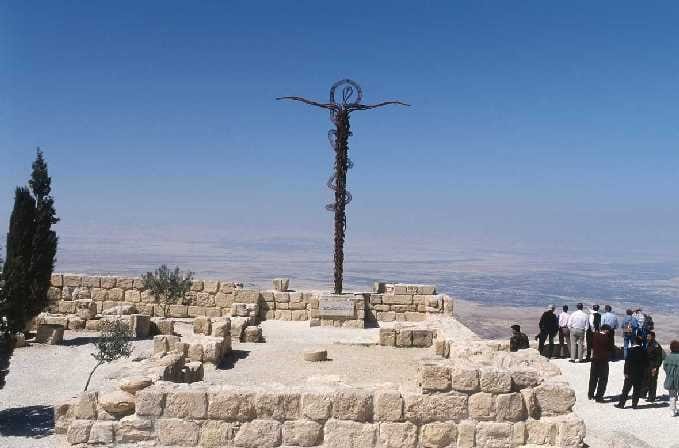
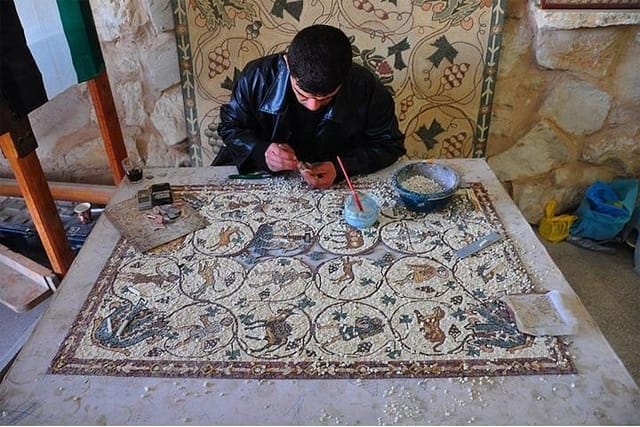
What to do
Canyoning in Wadi Hora
Experience an adrenaline-pumping adventure through the narrow canyons of Wadi Hora. The journey includes hiking and rappelling through stunning rock formations.
- Hours: 8:00 AM – 12:00 PM
- Cost: Included in itinerary (or inquire locally)
- Website: badventure.net
Petra Back Trail Hike
Discover the hidden gems of Petra by following the ancient Nabatean route. This hike takes you to iconic sites like “The Monastery” and “The Treasury” via Petra’s less-traveled back trail.
- Address: Petra Visitor Center, Wadi Musa, Petra
- Hours: 6:00 AM – 6:00 PM
- Cost: JOD 50 (Petra entrance fee)
- Website: Use a local guide
Climbing Jabal Burda
Scale Jordan’s highest mountain bridge, Jabal Burda, and enjoy panoramic views of the stunning Wadi Rum desert below.
- Hours: 8:00 AM – 12:00 PM
- Cost: Included in itinerary (or inquire locally)
- Website: wadirum.jo
Snorkeling, Diving & Boat Tour in Aqaba
Dive into the vibrant marine life of the Red Sea with a guided snorkeling experience, followed by a relaxing boat tour with an onboard BBQ.
- Hours: 10:00 AM – 2:00 PM
- Cost: Included in itinerary (or inquire locally)
- Website: Aqaba Tours
Float in the Dead Sea
Unwind by floating effortlessly in the Dead Sea, known for its mineral-rich waters and rejuvenating properties. A must-do for any visit to Jordan.
- Address: Dead Sea Resort Area, Jordan
- Hours: Open all day
- Cost: Free (entrance to public beaches); resort day pass available for JOD 30
- Website: deadsea.jo
Jerash Archaeological Site
Explore one of the most well-preserved Greco-Roman cities in the world. Wander through ancient colonnaded streets, temples, and theaters that tell the story of Jordan’s place at the crossroads of civilization.
- Hours: 8:00 AM – 4:00 PM
- Cost: JOD 12 (Included with Jordan Pass)
Ajloun Castle
This 12th-century Islamic fortress offers panoramic views of the Jordan Valley and is a great example of Arab military architecture.
- Hours: 8:00 AM – 4:00 PM
- Cost: JOD 3 (Included with Jordan Pass)
Dar Ne’meh Handicraft Experience
Engage with local women artisans in Ajloun and learn traditional crafts like embroidery and soap-making while enjoying homemade snacks in a welcoming community space.
- Hours: 10:00 AM – 3:00 PM
- Cost: Free entry; crafts and food available for purchase
- Website: darnehmeh.org
Tiraz Centre
Explore Jordan’s textile heritage with a curated collection of traditional garments, embroidery, and cultural exhibits.
- Hours: 10:00 AM – 4:00 PM (Sunday–Thursday)
- Cost: JOD 5
- Website: tirazcentre.org
Umm Qais Archaeological Site
Overlooking the Sea of Galilee, Umm Qais is home to Roman ruins, Ottoman-era architecture, and a vibrant local community engaged in cultural preservation.
- Hours: 8:00 AM – 4:00 PM
- Cost: JOD 3 (Included with Jordan Pass)
Bee Farm & Stone Masonry at Beit Al Baraka
Participate in sustainable tourism by spending time with local artisans. Learn beekeeping practices, traditional stone carving, and enjoy a homemade meal.
- Hours: Half- or full-day experiences by booking
- Cost: Varies
- Website: barakadestinations.com
Mount Nebo
A revered pilgrimage site where Moses is believed to have viewed the Promised Land. Enjoy views across the Jordan Valley and Dead Sea.
- Hours: 8:00 AM – 5:00 PM
- Cost: JOD 2
Mosaic Workshop – Madaba
Experience the artistry of Madaba’s famous mosaics firsthand in a local workshop, and see the famed 6th-century mosaic map at St. George Church.
- Hours: 9:00 AM – 4:00 PM
- Cost: Varies by workshop
Where to stay
Ritz-Carlton Amman
Experience luxury in the heart of the capital with elevated service, elegant interiors, and panoramic city views.
Address: 5th Circle, Amman, Jordan
Cost: $350–$600+ per night
Website: Ritz Carlton Amman
Mövenpick Resort Petra
Located just steps from Petra’s main entrance, this resort blends comfort and local design with rooftop views and Middle Eastern cuisine.
Address: Tourism Street, Petra, Wadi Musa, Jordan
Cost: $150–$250 per night
Website: Mövenpick Resort Petra
Hyatt Regency Ayla – Aqaba
A stylish stay in Aqaba’s modern Ayla Oasis, offering waterfront views, high-end amenities, and easy access to water adventures.
Address: Ayla Marina Village, Aqaba, Jordan
Cost: $160–$300 per night
Website: Hyatt Regency Ayla – Aqaba
Kempinski Hotel Ishtar Dead Sea
Indulge in luxury at this elegant resort on the shores of the Dead Sea, featuring infinity pools, award-winning spa treatments, and world-class dining.
Address: Dead Sea Road, Dead Sea, Jordan
Cost: $220–$400+ per night
Website: Kempinski Hotel Ishtar Dead Sea
Luxotel Wadi Rum
Stay in futuristic bubble domes with sweeping desert views, modern amenities, and prime stargazing opportunities.
Address: Wadi Rum, Jordan
Cost: $180–$280 per night
Website: Luxotel Wadi Rum
Little Petra Bedouin Camp
Stay overnight in a cozy Bedouin camp near Little Petra. Enjoy a traditional local dinner under the stars and wake up to breathtaking desert views.
- Address: Little Petra, Wadi Musa, Jordan
- Cost: Included in itinerary
- Website: Little Petra Bedouin Camp
Wadi Rum Bedouin Camp
Experience authentic Bedouin hospitality with a night in the Wadi Rum desert. Sleep in tents under a star-lit sky and enjoy the serene desert atmosphere.
- Address: Wadi Rum, Jordan
- Cost: Included in itinerary
- Website: Wadi Rum Bedouin Camp
There’s a variety of places to stay for all kinds of budget during your trip.
Check out the best accommodation deals below.
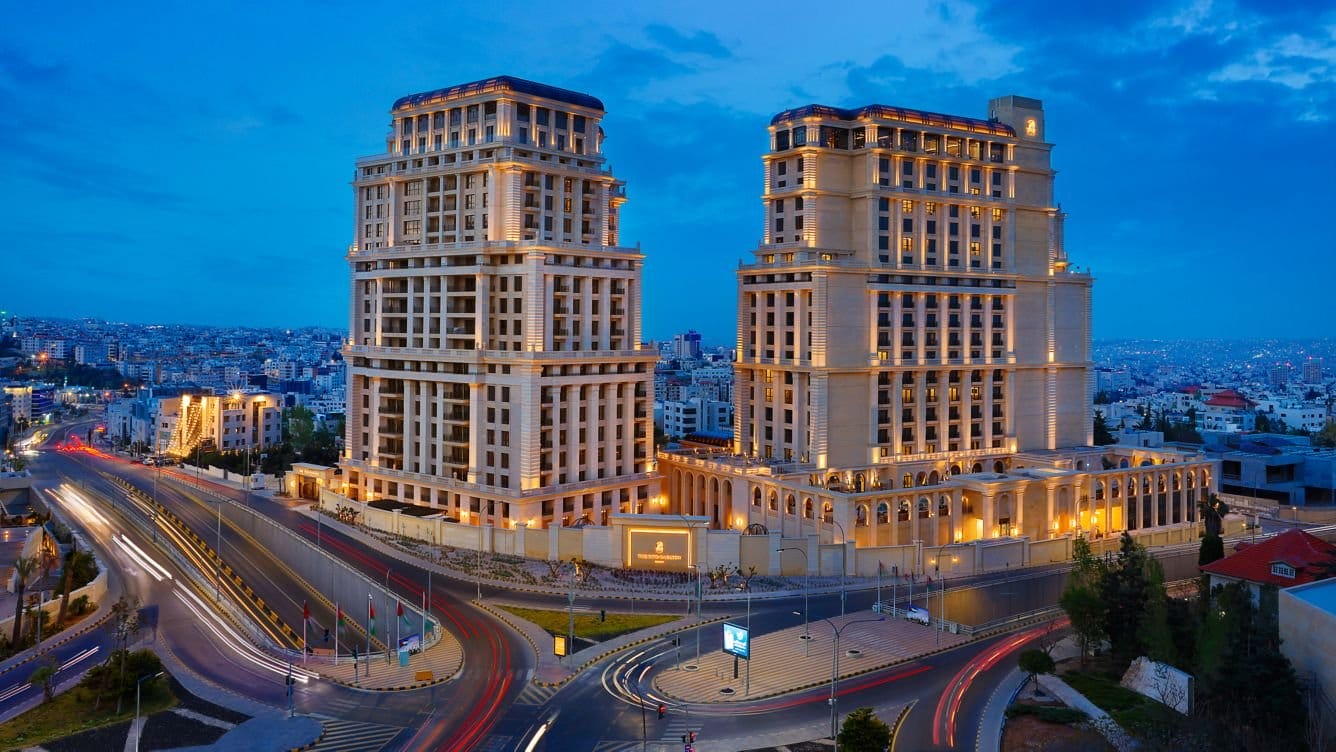
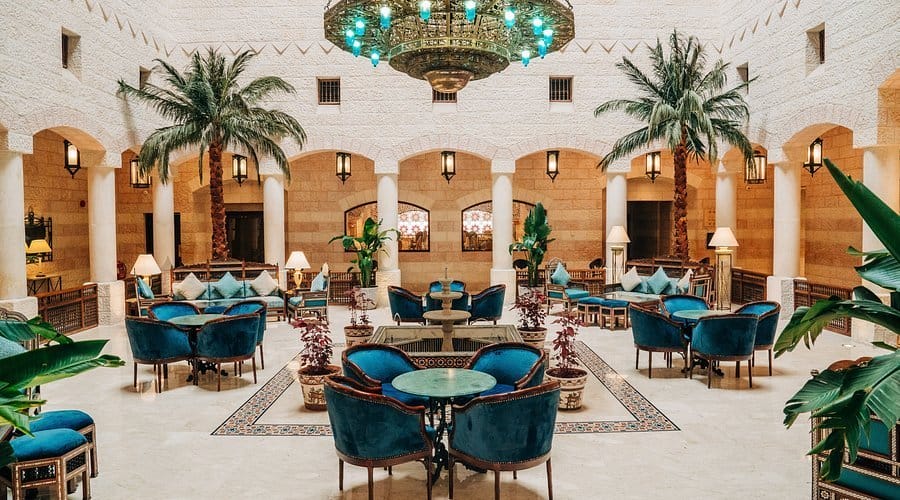
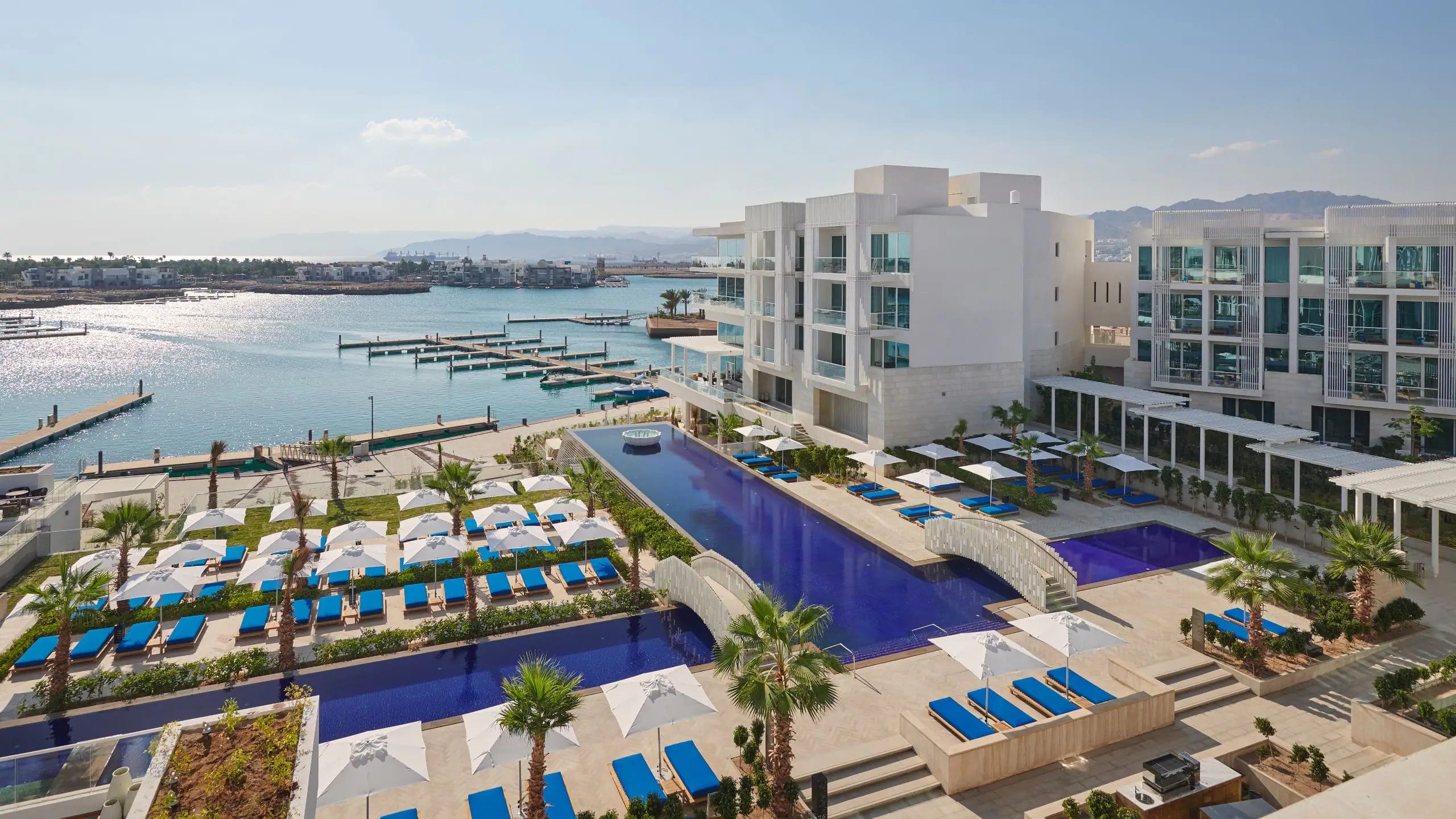

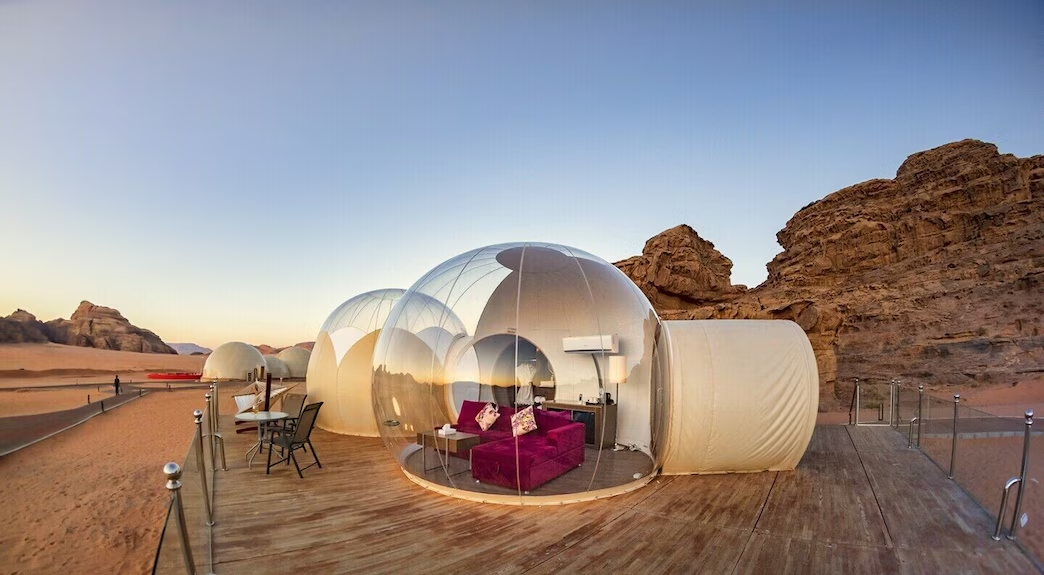
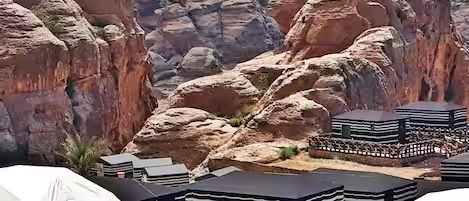
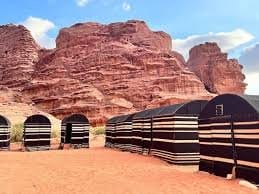

What to eat

The Flavors of Jordan
Jordanian cuisine is a rich tapestry of flavors, deeply influenced by Bedouin traditions and the broader culinary heritage of the Levant region. For decades Palestinians have retreated to make their new home in Jordan, so you will find many meals that blend traditional flavors—such as the use of olive oil, za’atar, and lamb. Generally, these food traditions reflect the desert lifestyle of the Bedouin people, marked by hearty, simple meals designed to sustain travelers over long journeys.
Jordanian vs. Palestinian Cuisine
Both Jordan and Palestine are known for dishes like mansaf (lamb cooked with yogurt), musakhan (roasted chicken with onions, sumac, and olive oil), and maqluba (an upside-down rice and meat dish) – as pictured above. However, Jordan’s mansaf is considered the national dish and is central to the culture, especially at family gatherings and celebrations. It’s traditionally served on a large communal platter and eaten with the hands, emphasizing the communal aspect of Jordanian dining. Palestinian cuisine, while sharing some dishes, often reflects the agrarian lifestyle of the region, with more emphasis on fresh vegetables, olive oil, and spices.
In both Jordan and Palestine, meals are often a way of showcasing hospitality, with an abundance of dishes served for guests. However, while Palestinian dishes might feature more mezze plates (small appetizer-like dishes), Jordanian food often focuses on larger, heartier meals that center around meat and rice.

Dining Traditions: Family-Style and Shared Meals
In Jordan, meals are typically eaten family-style. This means large platters of food are placed in the center of the table for everyone to share. It’s common to order a variety of dishes, from mezze plates like hummus, baba ghanoush, and labneh (strained yogurt) to larger plates of grilled meats, rice, and vegetables. Each person helps themselves from the communal dishes, often using their hands or bread to scoop up food.
The practice of sharing food highlights the Jordanian cultural value of hospitality, where meals are meant to be a collective experience. Whether dining with family, friends, or strangers, there’s always a sense of togetherness, with an emphasis on generosity and abundance.
Traditional Dishes to Try
- Mansaf: Jordan’s national dish, made with lamb, rice, and jameed (a fermented dried yogurt sauce).
- Maqluba: A one-pot dish of rice, meat, and vegetables, flipped upside down to serve.
- Zarb: A traditional Bedouin meal of meat and vegetables cooked underground.
- Falafel and Shawarma: Popular street foods, often eaten with a variety of dips and vegetables.
- Kunafa: A sweet pastry soaked in syrup, layered with cheese or cream, and topped with crushed pistachios.
How to Order and Eat
When dining out in Jordan, it’s common to order a variety of dishes to share among the group. Mezze (small plates) are typically served first, featuring salads, dips, and appetizers. These are followed by larger main courses, such as grilled meats or rice-based dishes. Bread, often freshly baked, accompanies most meals and is used to scoop up food from the communal plates.
Whether you’re dining at a family home or a restaurant, the experience is centered on sharing and enjoying a variety of flavors together. Meals in Jordan are not rushed; they are a time to connect, enjoy conversation, and experience the deep-rooted traditions of Jordanian hospitality.
Here’s some special cooking experiences to check out.

Carob House – Farm-to-Table Dining
A sustainable culinary experience showcasing Jordanian ingredients with a modern twist, all grown and harvested on-site.
Hours: Lunch & dinner by reservation
Cost: JOD 20–35 per person
Website: carobhouse.com

A charming cultural space and guesthouse that supports refugee and women's empowerment initiatives through art, craft, and community experiences. You can shop handmade goods, enjoy a garden tea, or participate in workshops that support local artisans.
Hours: 10:00 AM – 6:00 PM (Sunday–Thursday)
Cost: Free entry; items and workshops priced individually
Website: jasminehouse.org
Travel Tips
Best Time to Visit
The ideal time to visit Jordan is during the spring (March to May) and fall (September to November). During these months, the weather is pleasantly warm, perfect for outdoor activities like hiking, canyoning, and exploring historical sites like Petra.
Summers (June to August) can be extremely hot, especially in the desert areas like Wadi Rum, while winters (December to February) can be quite cold, particularly in the highlands and Amman.
If you’re planning to visit the Dead Sea or Aqaba for snorkeling, both locations offer comfortable conditions year-round.Getting Around
Jordan offers several transportation options, making it easy to explore the country’s diverse landscapes:
Car Rentals: Renting a car is a convenient option, especially if you plan to explore remote locations like Wadi Rum or Petra. Major car rental companies operate in Amman and Aqaba.
Public Transit: Public buses and minibusses operate between major cities like Amman, Petra, and Aqaba. They are affordable but may not follow strict schedules.
Ride-Sharing: Uber and local ride-sharing app Careem operate in Amman, providing easy access to short-distance travel. Taxis are also widely available.
Private Transfers: Many tourists opt for private transfers arranged through hotels or tour companies, particularly for getting to and from sites like Petra and the Dead Sea.
Safety Tips
Jordan is generally considered a safe destination for travelers, but it’s always important to stay cautious and respectful of local customs.
Dress Modestly: While Jordan is a relatively liberal country in comparison to some of its neighbors, it is still recommended to dress modestly, especially when visiting religious or rural areas.
Stay Hydrated: Jordan’s desert climate can be hot and dry, particularly in summer. Carry plenty of water when exploring outdoor areas like Petra or Wadi Rum.
Avoid Remote Areas Alone: When hiking or canyoning, it’s best to travel with a guide, especially in more remote locations like Wadi Hora or Burda Mountain.
Scams: Like in many tourist-heavy destinations, be wary of overcharging or aggressive sales tactics in markets or at tourist sites. It's a good idea to agree on prices for taxis or souvenirs upfront.Helpful Notes
Currency: The official currency in Jordan is the Jordanian Dinar (JOD). Credit cards are widely accepted in hotels and larger establishments, but it’s recommended to carry cash for smaller purchases and in rural areas. ATMs are easily available in major cities like Amman and Aqaba.
Jordan Pass: Consider purchasing the Jordan Pass before your trip. It grants access to over 40 attractions, including Petra, Wadi Rum, and Jerash, and waives the visa fee if you stay in Jordan for at least three nights.
Cultural Respect: Jordanians are known for their hospitality. If you’re invited to a local’s home, it's customary to bring a small gift, such as sweets or fruit. Also, remember to remove your shoes before entering someone’s home.
Language: Arabic is the official language, though English is widely spoken in tourist areas.
Health and Safety: It’s always a good idea to have travel insurance that covers activities like hiking or canyoning. Make sure you have access to basic first aid, especially if you're heading to remote desert areas. Additionally, it's recommended to drink bottled water.
Plug/Adapter Info
Plug Type: Type C, D, F, G, and J
Voltage: 230 V
Frequency: 50 Hz

Packing list
Here’s our suggested items to pack for this destination. Please always consider the weather and activities you will be doing.
Clothing
- Lightweight, Breathable Clothing: For daytime desert adventures and city exploring (T-shirts, long-sleeve shirts, and lightweight pants).
- Hiking Gear: Quick-dry clothing, moisture-wicking layers, and hiking pants.
- Warm Layers: It can get chilly at night, especially in the desert (fleece jacket or sweater).
- Waterproof Jacket: For unexpected rain or wind during hikes and canyoning.
- Swimwear: For snorkeling in Aqaba and floating in the Dead Sea.
- Scarf or Buff: To protect against sun, dust, and wind, especially in the desert.
- Comfortable Walking Shoes: Ideal for exploring Petra and Amman.
- Hiking Boots: Sturdy boots for climbing Jabal Burda and canyoning.
- Sandals/Water Shoes: For boat tours and relaxing at the Dead Sea.
Accessories
- Sun Protection: Sunblock (SPF 30+), wide-brimmed hat, and sunglasses for the intense desert sun.
- Daypack: A small backpack for day trips and hikes.
- Reusable Water Bottle: Stay hydrated during outdoor activities.
- Dry Bag: Useful for keeping valuables dry during canyoning and snorkeling.
- Snorkel Gear (Optional): If you prefer to bring your own for snorkeling in Aqaba.
- Headlamp/Flashlight: For nighttime adventures at your desert camp.
Personal Items
- Travel-sized Toiletries: Shampoo, conditioner, and body wash for desert and camping nights.
- Personal First Aid Kit: Band-aids, antiseptic, medications, and a blister kit for long hikes.
- Insect Repellent: Particularly useful in desert camps.
- Wet Wipes & Hand Sanitizer: Convenient for freshening up on long days of exploration.
- Lip Balm with SPF: To protect against dry desert air.
Tech and Travel Essentials
- Camera and Extra Batteries: To capture stunning landscapes and historical sites.
- Portable Charger: Keep your devices powered during long days of adventure.
- Travel Documents: Passport, Jordan Pass, travel insurance, and health requirements.
Get a full packing list and free downloadable template at Pack Better.
Ultimate Packing List Library
Find the perfect customizable packing list for all of your travel situations on our sister website Pack Better.
Trip provided by: Adventure Travel and Trade Association and Jordan Tourism Board
Director of Photography: Jesse Todd
Special Thanks: B Adventures and Bader Abdel Jawad







